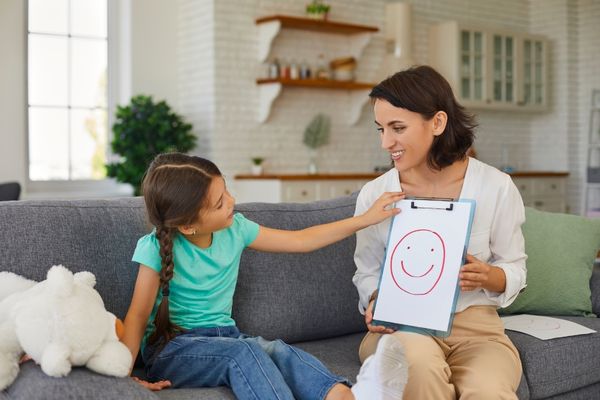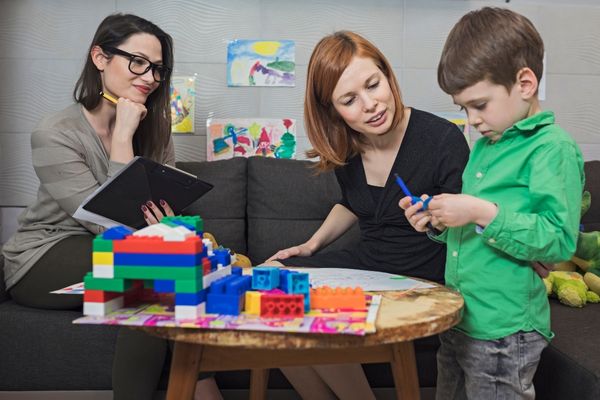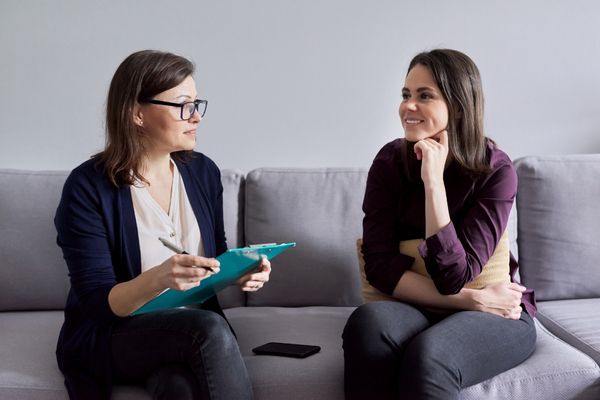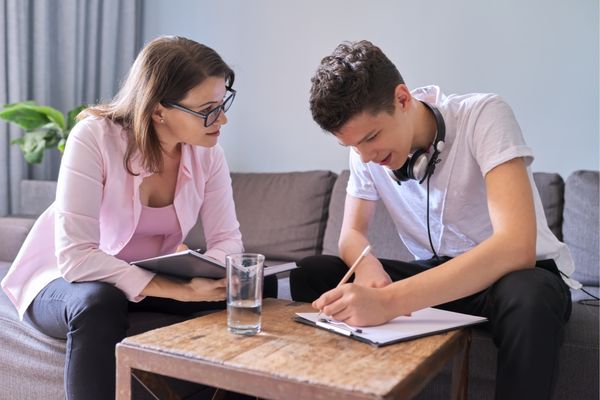
- Psychologists are health professionals who are trained in the science of how people think, feel, behave and learn. Psychologists help people to find solutions to real life problems such as improving mental health and well being, learning, performance, relationships, and societal cohesiveness. -

What to Expect at Occumax
At Occumax we help your child to develop their emotional resilience and mental well being. Our Psychologist will work with you and your family to foster your child's capacity to better manager their emotions, behaviour and relationships.
Getting Started with Psychology
Your Initial Parent Consultation
Your family's journey with our Psychologist begins with an initial parent consultation. It is important to create a sense of psychological safety when working with your child so we ask that your parent consultation be conducted without your child present, or at least not within ear shot. There may be some sensitive topics that our Psychologist will ask you about so it is best for your child's well being and self-esteem that they not be present.
Please allow 1.5 hours for your initial parent consultation. If less time is required, you will only be billed for the duration of the consultation. During this appointment, your Psychologist will discuss your main concerns, gain a comprehensive developmental history of your child and they may also complete some standarised caregiver assessments with you.
Your Psychologist will be on the look out for a range of foundation skills that are important for your child's social and emotional development, such your child's:

- Engagement and interaction skills
- Ability to start and maintain a conversation and stay on topic
- Understanding of social rules, particularly implied or hidden social rules and conventions
- Ability to pick up on the social cues of others
- Emotional literacy (e.g. understanding that there are a range of emotions and being able to express ones feelings in a way that matches the situation)
- Emotional regulation skills
- Problem solving and conflict resolution skills
- Self confidence, self-esteem and resilience skills when tasks are challenging or don't go according to plan
- Ability to manage frustration, anger or anxiety
- Ability to understand the perspectives of others and have flexible thinking
- Understanding what it takes to be a good friend, what traits to look for in a good friend and how to stay safe in the community
Your Child's Initial Consultation
After your Psychologist has had your Initial Parent Consultation, they will schedule a subsequent consultation with your child. During this appointment, your Psychologist will chat with your child to get to know them and make them feel comfortable. They may ask them about their interests, things that are important to them in their home or school life and any challenges they might be having. It make seem like your Psychologist is "just chatting" with your child but they are making important clinical observations and building rapport with your child which will set your child up for success in future therapy sessions. As each child is different, your Psychologist will discuss with you prior to your child's appointment how long the session will go for and what else they might require from you e.g. resources, parent present etc.
Your Child’s Intervention
After your Psychologist has analysed all the information gathered during the initial consultation, they will discuss the findings with you (usually in your second session). They will also discuss what intervention approach will best suit your child, set intervention goals and you can decide how often you would like therapy.
Parents are required to attend therapy appointments, unless otherwise agreed. This gives you the opportunity to see how to do the activities at home and the cues and prompts your child responds to. It also allows you to discuss any issues or questions you might have about your child’s development.
Sometimes older primary aged children and teenagers find it easier to talk about their thoughts and feelings without their parent present. If you or Psychologist feels that your child would work better if they attended the therapy session by themselves, then this can be accommodated for. In these instances, parents are usually asked to join in the last 5-10 minutes of the session so that they can be briefed on strategies learnt during the session, discuss any issues that may have come up and given activities to try at home. This is also a time when parents can ask for issues that they might need guidance with.

Depending on your child’s needs, goals and age, your therapist may recommend or utilise the following intervention approaches:
- Individual therapy sessions (usually 50 minutes, weekly, fortnightly or monthly) utilising:
- Psychoeducation Training & Strategies For Anxiety Management, Depression & Other Mood Issues
- Cognitive Behavioural Therapy
- Solutions-Focused & Strengths Based Approaches to Overcoming Life's Challenges
- Relaxation Techniques
- Behaviour Management Strategies
- Counselling, Including Counselling for Grief & Loss Issues
- Psychometric Testing
- Strategies To Support Attention, Organisational Skills and Other Executive Functioning Skills
- Parenting Skills Training – We believe no question is too small or “silly” for you to ask
- Home program strategies and activities
- Consultation with teachers or other children involved in your child's life
- Referral to other support services in the community for you or your child
Book Psychology Appointment
Book online or call our office on 07 4818 0445 to make an appointment for your child.
Got Questions?
Use the enquiry form below or call us on 07 4818 0445 to find out about how our Psychologist can help your child.
![]() We value your privacy and would never spam you
We value your privacy and would never spam you
Menu
Recent Posts From
Our Blog
-
 How To Get Wriggly Kids To Sit Still November 15, 2016
How To Get Wriggly Kids To Sit Still November 15, 2016 -

-
Five benefits of shaving cream for Occupational Therapy Home Programs February 18, 2014
